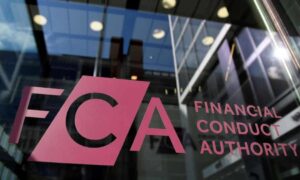
The UK’s biggest banks have been told by the City watchdog to do more to ensure parliamentarians, senior public servants and their families are treated fairly in the wake of the Nigel Farage debanking row.
In a warning to financial firms – including banks, payment firms and lenders – the Financial Conduct Authority (FCA) said they should not disadvantage people running for office or taking senior public roles.
It follows the political row last year triggered by Farage after the prestigious private bank Coutts closed his account, leading to a media storm and the issue being taken up by the then Conservative government.
Farage argued the closure was likely to have been linked to his status as a politically exposed person (PEP) and claims in the Commons that he had received payments from Moscow’s state-funded broadcaster, Russia Today.
Details leaked to the BBC suggested Farage had fallen below Coutts’ commercial criteria, which require customers to hold at least £3m in savings, or borrow or invest at least £1m with the bank.
However, Farage later obtained evidence through a subject access request which he claimed showed that Coutts took action because of his political values, leading to wider questions over whether banks were treating politically exposed customers fairly.
The scandal led to the resignation of Alison Rose, the chief executive of NatWest Group, the part-taxpayer-owned lender rescued by the UK government in the 2008 financial crisis, which owns Coutts.
Farage, who earlier this month was elected to represent Clacton as an MP for the Reform UK party, is in Milwaukee, Wisconsin, after leaving the king’s speech debate in the House of Commons on Wednesday to fly to the US Republican national convention.
For several years before the row over Farage’s Coutts account, charity groups had been warning they were being caught by banks de-risking their exposure to politically sensitive customers, amid a rush in the industry to comply with tougher money laundering laws and scrutiny after the 2008 financial crisis.
